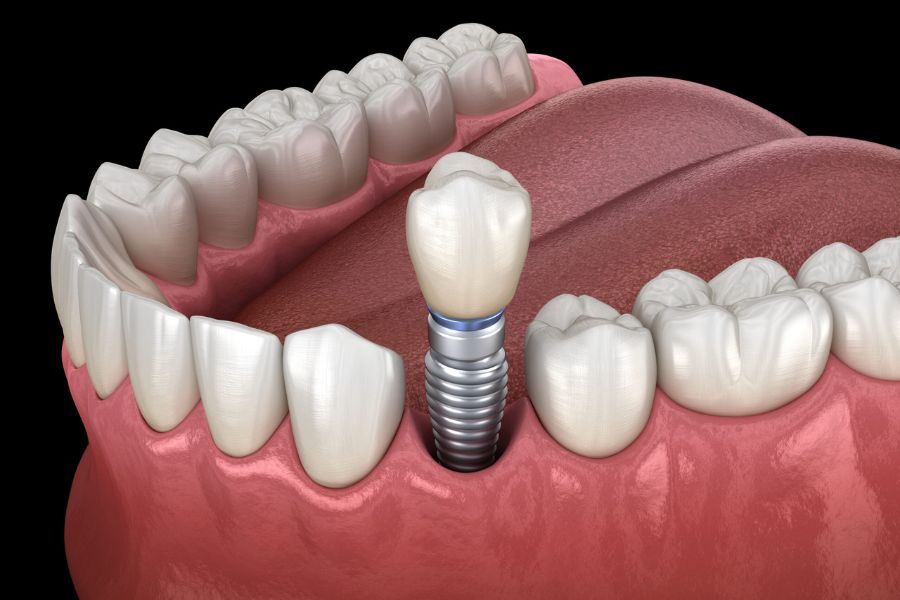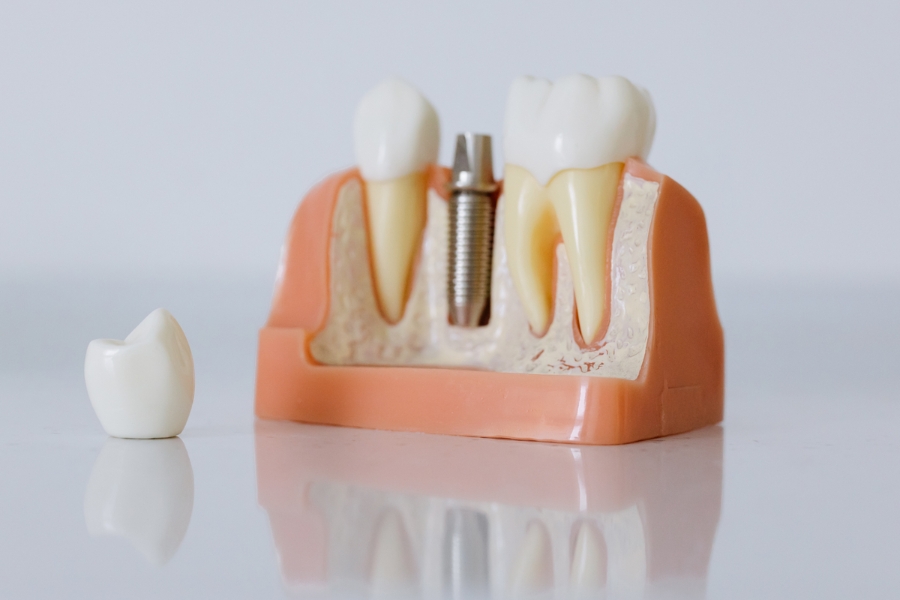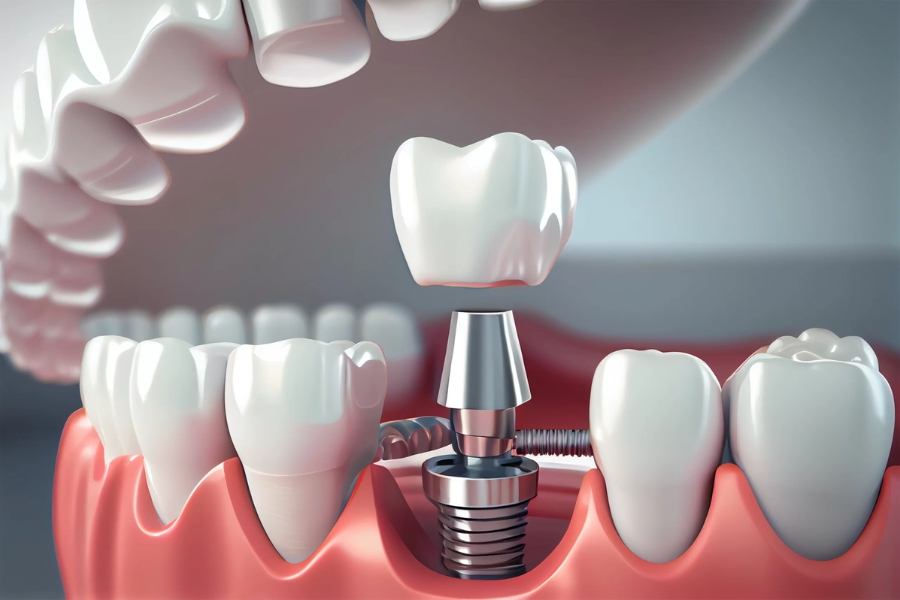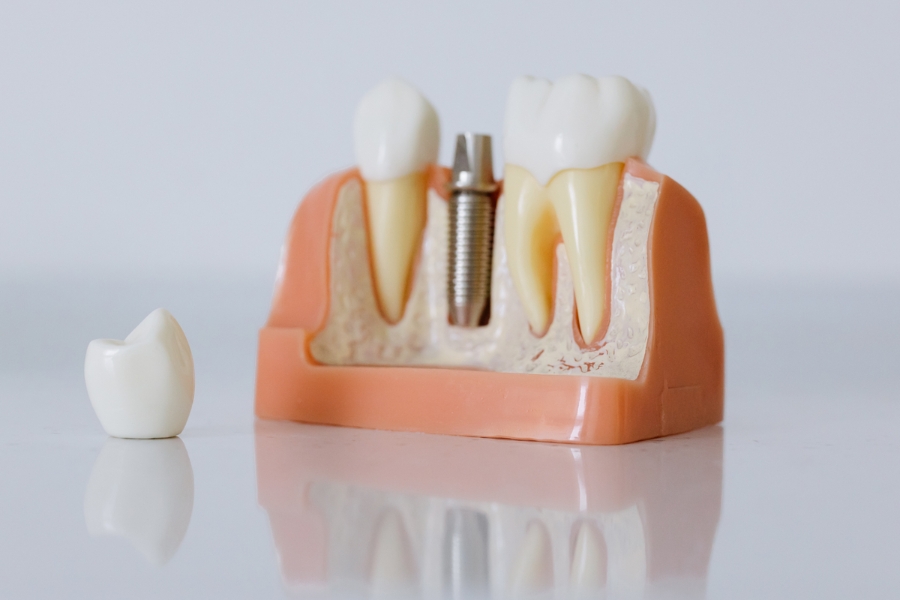How Should I Maintain My Dental Implants?

Dental implants are a popular and effective solution for replacing missing teeth, providing a permanent base for fixed replacement teeth. Compared to dentures, bridges, and crowns, dental implants are a long-term option for people suffering from missing teeth, failing teeth, or chronic dental problems. Because they fit, feel, and function like natural teeth, dental implants are quickly becoming the new standard in tooth replacement. However, like natural teeth, they require careful maintenance to ensure they last a long time and continue to function correctly. Here’s a comprehensive guide on how to maintain your dental implants.
Regular Oral Hygiene
Brushing and Flossing: The cornerstone of dental implant care is similar to caring for your natural teeth. This includes brushing at least twice a day and flossing daily. Use a soft-bristled toothbrush and a non-abrasive toothpaste to avoid scratching the surface of the implants. When flossing, use unwaxed tape or implant-specific floss to ensure you don’t damage the tissue around the implant.
Interdental Brushes: In addition to regular flossing, interdental brushes can be particularly useful for cleaning around implants. These brushes can help remove plaque and food particles from areas that are hard to reach with traditional floss.
Professional Dental Care
Regular Dental Check-ups: Visit your dentist regularly for check-ups and professional cleanings. Your dentist can monitor your implants, check for signs of infection or inflammation, and clean areas that are difficult to reach at home. These visits are typically recommended every six months, but follow your dentist’s advice based on your individual needs.
Professional Cleaning: Special tools are required to clean dental implants so as not to scratch their surface. Your dental professional knows how to clean around and under the implant crown, abutment, and along the gum line without damaging them.
Avoid Damaging Habits
Don’t smoke: Smoking can inhibit healing in the mouth and can significantly increase the risk of implant failure. If you have dental implants, it’s best to quit smoking to ensure the longevity of your implants and overall oral health.
Avoid Chewing Hard Items: Chewing on hard items like ice, hard candy, or pens can damage both natural teeth and dental implants. Such habits can lead to chipping or cracking of the dental crown on the implant.
Wear a Mouthguard if Necessary: If you grind your teeth at night or participate in contact sports, wearing a mouthguard can help protect your implants from damage.
Immediate Care Post-Surgery
Follow Post-Surgical Care Instructions: Right after your dental implant surgery, it’s crucial to follow your dentist’s instructions carefully. This might include taking prescribed medications, eating soft foods, and avoiding certain activities to ensure proper healing.
Avoid Disturbing the Surgical Site: In the days following your surgery, be gentle around the surgical site. Avoid brushing the area directly and use a soft, antimicrobial mouthwash to help keep the area clean.
Long-Term Maintenance
Regular Inspection: Keep an eye on your implants for any signs of looseness, discomfort, or infection. Although rare, problems can occur, and early detection is key to preventing more serious complications.
Maintain Overall Health: Good general health helps support dental health, including the health of your dental implants. This includes maintaining a balanced diet and avoiding or managing conditions like diabetes, which can affect oral health.
Immediate Attention to Problems: If you notice any issues with your dental implants, such as pain, swelling, or the implant feeling loose, contact your dentist immediately. Prompt attention to any abnormalities can prevent further problems.
Maintaining dental implants is not significantly different from caring for your natural teeth, but it does require consistent and proper oral hygiene. By following the advice outlined above, you can ensure that your dental implants remain healthy, functional, and aesthetically pleasing for many years to come. Remember, while dental implants are designed to be a long-lasting solution, their longevity greatly depends on how well they are cared for. Regular dental visits, proper home care, and a healthy lifestyle are essential to preserving the health and functionality of your dental implants.




